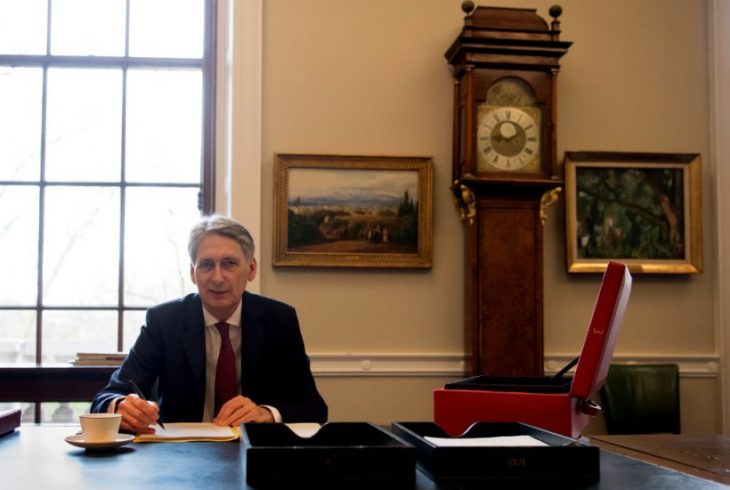Last Wednesday, Philip Hammond made a joke at Norman Lamont’s expense by reminding the world of how John Major’s first chancellor was sacked after a negative public reaction to his budget in 1993. Hammond, one suspects, is already beginning to regret his gag as Lamont today became the latest Conservative to damn his plans to raise National Insurance contributions on the self-employed.
What has been so damaging is not so much the staged 2 per cent rise in contributions as the strong hint that he is considering going far further and equalising, as he sees it, the NI contributions of employed and the self-employed in the name of ‘fairness’. Employees currently pay 12 per cent of their income between £155 per week and £827 per week, while their employers chip in a further 13.8 per cent. The self-employed, by comparison, pay 9 per cent on income between £155 per week and £827 per week. Both groups pay 2 per cent on any income above that level. Hammond said last Wednesday:
‘An employee earning £32,000 will incur between him and his employer £6,170 of national insurance contributions. A self-employed person earning the equivalent amount will pay just £2,300 – significantly less than half as much.’
Yet this is a false comparison because £3,120 of the £6,170 is National Insurance paid by the employer – it isn’t paid out of the employee’s £32,000 salary. To make a fairer comparison you would have to compare the tax bills of an employee of £32,000 with a self-employed person on £35,120 – the higher figure being what it costs to employ someone on £32,000 a year. The £3,120 is a tax-deductible business expense for the company – it reduces the company’s tax bill. A self-employed person on £35,120, however, would be liable for income tax on their full earnings — they couldn’t deduct their NI bill from their taxable income.
The self-employed person would, therefore, be paying an extra £624 in income tax (20 per cent x £3,210) compared with the employee. He would also be paying NI contributions of 9 per cent on the extra £3,120 – £280. Put that together, and the government still takes significantly more tax from the employed person, but if the government really were to equalise National Insurance contributions on employees and the self-employed – as Matthew Taylor, Paul Johnson and others seem to want to happen – then the self-employed person would be paying considerably more tax.
It is questionable that Hammond really will get much extra revenue from his change, given that he has increased the incentive for self-employed people to incorporate – i.e. form a company through which to operate their business. Do that, and you can reduce your National Insurance bill to zero. If you are on £32,000 a year and form yourself a company can pay yourself a salary of £8,000 a year (just below the threshold for NI) and take the other £24,000 in the form of dividends.
Compared with employees, the self-employed may seem lightly-taxed, yet if you instead compare them with companies they are very heavily taxed. Moreover, the gap is growing: Hammond reduced corporation tax last week by 17 per cent – below even the lower rate of income tax.
Hammond’s bogus comparison and the loophole he has left behind are the sort of errors in a Chancellor’s budget that the once-neutral Institute of Fiscal Studies (IFS) used to point out. Yet remarkably, this week, the IFS has been among the Chancellor’s few supporters, with director Paul Johnson saying that the change moves NI policy ‘a little bit in the right direction’. Unlike his predecessor, Robert Chote, now running the Office for Budget Responsibility, Johnson seems to have an agenda of his own. Under his watch the IFS has ceased to be useful for independent analysis of the Budget.







Comments